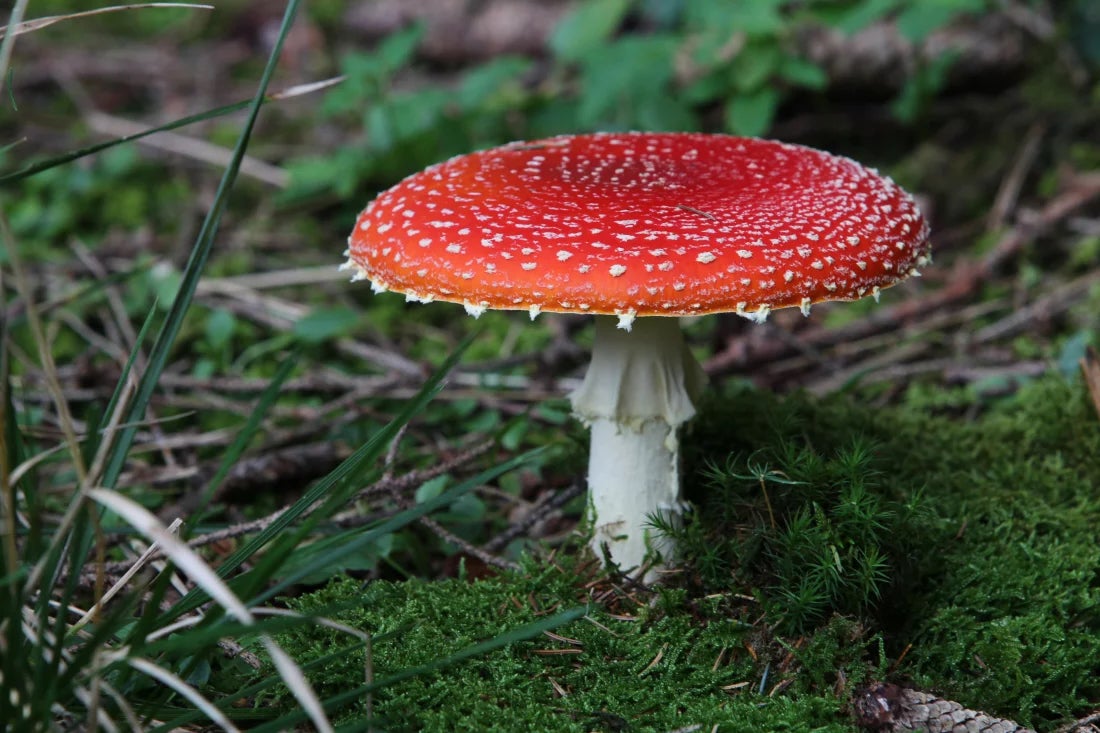
“There have been warning letters around that, but they generally haven’t been enforced unless there’s unlawful drug claims, marketing to children or other public safety issues,” she says.
A spokesperson for the National Association of Convenience Stores said they were alerting their members so that they “can take appropriate action” in response to the warning letter.
Marks says the FDA ruling doesn’t prohibit people from growing or picking this kind of mushroom, which has a relatively small following compared to other psychedelics.
Amanita muscaria targets GABA receptors (unlike psilocybin that primarily acts on serotonin receptors) and can lead to a dissociative state that some describe as quite unpleasant and even disturbing in high doses.
“There are people that are interested in having heavy psychedelic experiences, and this really isn’t the mushroom to go to for that,” says Kevin Feeney, a lawyer and a cultural anthropologist at Central Washington University who has edited a compendium on Amanita muscaria.
People often seek it out for microdosing out of the belief that it helps anxiety, sleep and even more serious problems like addiction to benzodiazepines and alcohol, though there’s little evidence from clinical research on its possible therapeutic properties in humans.
“[FDA] is clearly addressing this mushroom,” Feeney says. “But to what degree are they addressing the other additives that are in these products?”
Feeney is also an adviser to Psyched Wellness, a company that sells Amanita muscaria products and is affected by the FDA decision. He says his comments do not reflect the company’s views.
While the mushroom is poisonous, there are not many documented reports of overdose and death.
In its scientific review, FDA staff noted there were no “toxicity studies sufficient to establish the safe use” of the mushroom or its extracts, and that the available information “underscores their potential for serious harm and adverse effects on the central nervous system,” including hallucinations, drowsiness, delirium and seizure.
Online retailer Rasmussen and others in the industry have said the mushroom can be prepared in ways that reduce undesirable effects. The FDA said there are no internationally recognized food standards to support safe processing and consumption.
Hauser, the Colorado-based lawyer, sees this as a cautionary tale of the “hands-off” approach that the FDA has taken with some natural substances that have a history of being used for medicinal, beneficial or spiritual purposes.
“This is one of the places where consumer demand is moving faster than the law, and businesses are going to try and meet that demand,” she says. “When these products are unregulated and when there isn’t consumer education, that’s where you have real public safety issues.”
